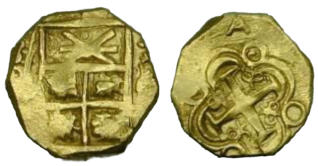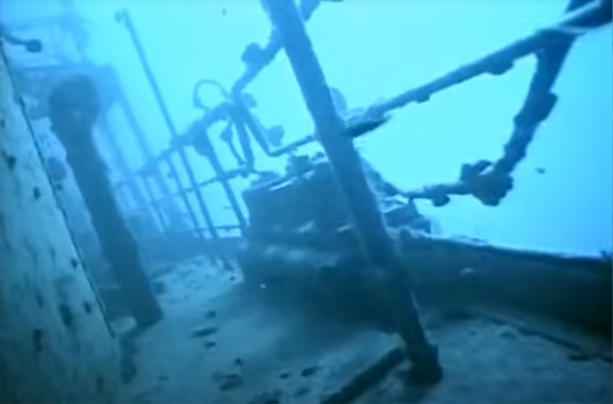Cultural activities


Click on the
octopus to return to
the top of the page
Description
Cultural activities encompass expressions, traditions, and practices
that reflect a group's shared values, beliefs, and history.
Divers, underwater vehicle pilots, technicians, and sailors share
common values based on the history of navigation, diving, and
submarine crafts.
Although our database provides numerous scientific and technical
papers that facilitate understanding of the reasons for the procedures
we use today and their evolution over time, other sources, such as
archaeological and historical reports, as well as maritime and diving
museums, should also be considered. For this reason, this section aims
to provide links to museums, archaeological organizations, and any
organizations involved in cultural activities related to diving, navigation,
and underwater vehicles. It must be noted that these cultural
organizations should be actively supported, as establishing historical
facts would be impossible without the efforts of individuals who collect,
restore, and study ancient artifacts and documents.
1 - Underwater archeology
In the early days of diving, underwater archaeology primarily involved
retrieving objects from shipwrecks for profit, sometimes for
museums, and typically without conducting detailed investigations.
Today, such practices are strictly prohibited by exclusive economic
zone conventions under the International Maritime Organization, which
designate wrecks as the property of coastal states. Additionally, the
"UNESCO Convention on the Protection of the Underwater Cultural
Heritage" supports these regulations and establishes methods for
investigating and protecting wrecks. As a result, modern underwater
archaeology is conducted by government-appointed scientists who are
responsible for investigating shipwrecks within their respective
national waters. Additionally, it is pertinent to note that wrecks not only
provide historical insights but also serve as valuable resources for
scientific research by offering opportunities for studies in corrosion
and material degradation in diverse aquatic environments or the
examination of geological evolution in specific regions, among other
areas of inquiry.
Despite being tasked with this important work, many archeologists
face significant budget constraints that limit their ability to conduct
thorough investigations. As a result, they sometimes seek assistance
from volunteer sports divers using SCUBA or rebreathers.
While helpful in some ways, it must be noted that these diving
practices are not as safe as those in force in commercial diving and
cannot be carried out on sites where professional operations are
already taking place, despite what some self-proclaimed organizations
might claim. The main reason is that it would be unsuitable to impose a
high level of safety on some divers while authorizing others with
weaker levels to dive at the same site. This is why we have separated
archeology from other underwater work activities, as we cannot
support working activities performed using the above gears despite
understanding why archeologists use them. For more information,
refer to the Diving study CCO Ltd #9 “Analysis of the document IOGP
411 - rev. 2021” (page 92).
It should also be mentioned that Remotely Operated Vehicles (ROVs)
and Autonomous Underwater Vehicles have become increasingly
popular tools among archaeologists in recent years. Initially developed
for offshore industries, these advanced technologies have helped
improve many aspects of modern-day underwater investigations while
simultaneously reducing reliance on recreational divers.

2 - Maritime and diving museums
Numerous national maritime museums have been created that exhibit
vessels' parts, navigation tools, and diving equipment from the early
periods of navigation and diving. It is also the case of private and non-
profit organizations that organize various activities explaining these old
systems. These establishments can be visited during their open hours
and can be contacted for documentation.
In addition, historical diving websites have been created that provide a
lot of photos and documents.
To open the list, click the button below.



3 - Addresses for those who want to start diving
Addresses for commercial diving and ROV pilot training schools are
listed in the "Training Establishments & Recruitment Agencies" section
under "Logistics." It is advisable for individuals without prior diving
experience to begin as recreational divers and engage with
organizations that employ recreational divers for activities such as
archaeology. This experience can confirm their suitability for working
efficiently in aquatic environments. Many commercial divers have
embarked on their professional journeys following this pathway. Given
the substantial cost of commercial diving courses, it is prudent to
ascertain one's aptitude for such roles before committing to the
profession. The lists below are intended to provide elements to assist
in this evaluation.
•
Members of the Confederation Mondiale des Activites
Subaquatiques (CMAS):
The “World Underwater Federation, also known as the
“Confederation Mondiale des Activites Subaquatiques (CMAS)”, is a
non-commercial international diving federation that provides sport
diving and other aquatic activities. It is recognized by the United
Nations Educational, Scientific and Cultural Organization (UNESCO)
and the International Olympic Committee (IOC), in addition to being a
member of the World Anti-Doping Agency (WADA).
Founded in 1959 in Monaco, it includes over 120 federations offering
reasonably priced courses.
Click on the button below to access their website.
•
Divers Alert Network (DAN):
Divers Alert Network (DAN) is a safety organization
dedicated to supporting divers.
It provides research and emergency medical services, educational
programs, insurance, and various support services.
It must be noted that the courses provided are of a high level.
The DAN website can be accessed by clicking on the button below.
•
List of manufacturers of scuba diving equipment:
Although sport diving gear is much simpler than the equipment
used for commercial diving, the investment remains costly for less
fortunate individuals. Therefore, investing in robust and performant
systems that will last a long time and not break down during a dive
is crucial.
The index we provide lists some of the most well-known
manufacturers. Click on the button below to open it.
For those interested in learning more about underwater archeology
courses or participating in non-profit organizations engaged in similar
activities, we have included links that provide relevant addresses, along
with various reports compiled by experts in this field. Click on the
button below to open our database.












